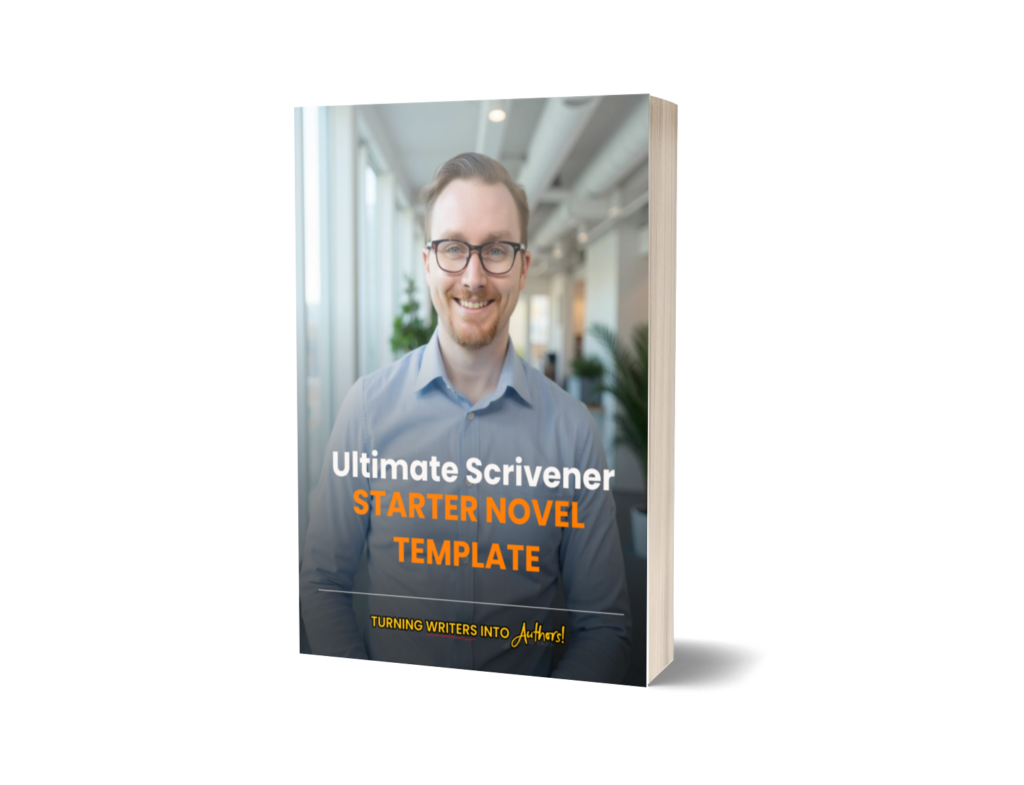Becoming a writer is a deeply personal and rewarding journey. But whether you’re penning short stories, crafting novels, or exploring new worlds with poetry, it’s essential to understand what kind of writer you are. Each type of writer brings unique strengths to the table, but also faces specific challenges. Knowing where you stand can help you lean into your strengths, overcome hurdles, and unlock your fullest potential as a creative professional.
Here, we’ll explore three common types of writers—The Aspiring Pantser, The Determined Plotter, and The Empowered Creator. Then, we’ll offer practical advice to help you play to your strengths, conquer your challenges, and thrive in your writing career.
Find out your writer type today by taking the quiz!

1. The Imaginative Pantser
Overview
Do you find yourself constantly daydreaming, losing track of time as you envision fantastical worlds, unforgettable characters, or stories that feel bigger than life? If so, you’re likely The Imaginative Pantser. You’re fueled by an unending imagination that allows you to leap into the unknown with excitement and wonder. Writing, for you, is an act of creativity and exploration, driven by the exhilarating possibilities within your mind.
Strengths
- Boundless Imagination: You can create intricate worlds, multidimensional characters, and stories full of originality.
- Passion for Exploration: Pushing boundaries and thinking outside the box come naturally to you.
- Deep Love for the Craft: Writing is more than a mere task—it’s a deeply emotional, soul-stirring art form. It’s not about chasing wealth—though that would certainly be welcome—but about crafting something timeless, something that resonates across generations.
Challenges
- Sharing your Work: Sharing your work with others can be a challenge. It often feels like exposing a piece of your soul, leaving you vulnerable to rejection or criticism. The fear of judgment, humiliation, or failure can hold you back, keeping your creations hidden from the world.
- Evoking Emotion: Your storytelling has the power to make readers laugh, cry, and think all on the same page.
- Staying Focused: While daydreaming comes naturally to you, finding the discipline to sit down and write can be challenging. You may find yourself easily distracted by new ideas or struggling to commit to one project for an extended period.
- Self-Doubt: As a dreamer, you may struggle with self-doubt and imposter syndrome. You constantly question whether your work is good enough or if you have what it takes to make it as a writer.
- Balancing Vision with Structure: While your creativity soars, you might find it hard to stick to consistent timelines or develop structured plots.
- Fear of Imperfection: Your pursuit of “the big idea” can sometimes lead to unrealistic standards, perfectionism, and ultimately procrastination.
- Prioritizing Art Over Business: As an Aspiring Dreamer, you may prioritize your art over business tasks like marketing and networking. While understandable, this can also hinder your career growth.
Tips for Success
Imaginative Pantsers thrive when they balance their big ideas with practical action steps. Start by creating outlines or frameworks to keep your thoughts organized. Remember, you don’t have to write a masterpiece in a single sitting—small, steady progress builds incredible work over time. Lean into your imagination but stay grounded by focusing on the joy of storytelling and practical steps that take you closer to finishing your book. If you’re committed to pursuing writing as a career, it’s essential to invest time in understanding the business side of the industry and how it aligns with both your current situation and long-term lifestyle goals.
- Embrace Vulnerability: Share your work with others, even if it feels scary. Remember that all writers face rejection and criticism, and use it as a chance to grow and improve.
- Find Accountability Buddies: Connect with other writers who can keep you accountable and cheer you on.
- Build Writing Systems: Remove motivation from the equation, and set a stable time to write consistently everyday. Yes you can still write when the muse strikes, but you must have a concrete writing system established that keeps you writing often and consistently.
- Set Small Goals: Don’t try to it all in one day or all at once. A career as a writer is huge undertaking. Break down your writing and learning into smaller, manageable tasks. This will help you stay focused, motivated, and make progress towards your larger goals.
- Celebrate Your Accomplishments: Don’t let self-doubt hold you back from celebrating your achievements—no matter how small they may seem.
- Try Different Writing Exercises: Experiment with different styles and genres to challenge yourself and continue growing as a writer.
- Find a Balance Between Structure and Creativity: While creativity is vital for an Aspiring Dreamer, don’t forget the importance of structure in achieving your writing goals.

2. The Determined Plotter
Overview
Plotters are the architects of captivating stories. They craft intricate narratives by carefully planning twists, building tension, and delivering impactful resolutions. If you thrive on structure, strategy, and creating stories that keep readers on the edge of their seats, you might be The Determined Plotter. You are a creator who values precision and masterful storytelling above all else.
Strengths
- Persistence and Dedication: You are willing to put in the work, draft after draft, until the story is just right.
- Master of Structure: You understand—or are learning—the fundamental building blocks of conflict, climax, and resolution.
- Attention to Detail: No plot hole or inconsistency can escape your keen eye for detail.
- Natural Strategist: You thrive on creating intricate plans and strategies that keep readers engaged from beginning to end.
Challenges
- Overplanning and Rigidity: While structure is important, overplanning or sticking too rigidly to an outline can stifle creativity and limit opportunities for organic plot twists or character development.
- Creative Blocks: When you hit a creative roadblock or encounter plot holes, it can be challenging to deviate from your original plan and find new solutions.
- Maintaining Reader Engagement: Well-crafted plots and settings can captivate, but without compelling characters, even the most vibrant settings and plots will fail to create an emotional connection with readers.
- Losing Momentum: Overanalyzing details during the planning phase can drain momentum and make it difficult to move forward.
- Maintaining Motivation During Setbacks: It’s easy to feel drained if you receive criticism or rejection.
- Balancing Writing with Life: Managing personal time while staying committed to your craft can sometimes feel like a juggling act.
- Breaking Creative Rules: Sticking too closely to traditional narrative structures might sometimes stifle your uniqueness.
Tips for Success
As The Determined Plotter, you already have the foundation for a captivating story. To continue honing your craft and reaching readers, try these tips:
- Strive for Excellence, Not Perfection: Creativity thrives in flexibility. Embrace unexpected ideas and don’t hesitate to pivot if a new direction outshines your original plan. Progress matters more than perfection.
- Adapt and Overcome: Writer’s block or plot holes? Change up your approach, experiment with new techniques, or seek feedback from fellow writers to reignite your creativity.
- Build Unforgettable Characters: A strong plot is important, but compelling characters create emotional connections. Spend as much time crafting your characters as you do your story.
- Set Realistic Goals and Deadlines: It can be easy to get overwhelmed by the sheer magnitude of writing a novel. Break it down into smaller, achievable goals and set deadlines for yourself to help stay motivated and on track.
- Celebrate Your Progress: Acknowledge your hard work and accomplishments, no matter how small they may seem.
- Challenge the Norms: Experiment with different styles and techniques to keep your creativity flowing. Don’t be afraid to break traditional storytelling rules if it makes your story stronger.

3. The Empowered Creator
Overview
As an empowered creator, chances are you’re a blend of both a plotter and a pantser. You may experience a mix of the strengths and challenges associated with each, but one thing remains clear: you’re confident and ready to take control. You recognize that writing is both a art and a business, and you’re determined in your mission to leave a lasting impact on the world.
Strengths
- Confidence: You believe in yourself and your abilities as a writer, which allows you to take risks and push boundaries.
- Flexibility: As a hybrid of plotter and pantser, you’re able to adapt to changing situations or challenges with ease.
- Creativity: Your ability to think outside the box allows you to come up with unique ideas and approaches for your writing.
- Business Acumen: You understand the importance of marketing, branding, and building an audience for your work.
Challenges
- Finding Balance: Balancing creativity with the business side of writing can be a challenge, as both require time and energy.
- Perfectionism: As an empowered creator, you may have high expectations for yourself and your work, which can lead to perfectionist tendencies.
- Self-Doubt and Imposter Syndrome: Despite your confidence, you may still struggle with self-doubt and feelings of inadequacy in your writing journey.
- Juggling Multiple Projects: Your ambition can lead to taking on too much at once.
- Maintaining Focus: With so many ideas and formats to explore, it can be hard to know where to prioritize efforts.
- Fear of Polarizing Readers: Writing about bold topics or personal beliefs can invite criticism, which may feel overwhelming.
Tips for Success
Empowered creators thrive by focusing their energy on a few key projects at a time. By prioritizing what matters most, they can execute their ideas effectively before taking on new challenges. Building connections with like-minded individuals or engaging with their audience helps maintain motivation and reinforces the value of their perspective. Above all, staying authentic to their values ensures their work remains powerful and genuine.
To continue thriving as an empowered creator, here are some tips to keep in mind:
- Stay True to Your Vision: Don’t let others’ opinions or trends sway you from your own unique voice and style. Trust in your vision and stay true to yourself.
- Set Boundaries: It’s important to balance your creative work with self-care and personal time. Set boundaries for yourself to prevent burnout and maintain a healthy work-life balance.
- Build a Support Network: Surround yourself with fellow writers, mentors, or other creatives who can offer support, guidance, and accountability.
- Celebrate Your Achievements: Take time to acknowledge and celebrate your successes, both big and small. This will help boost confidence and motivation as you continue on your writing journey.
- Take Breaks: If you’re a driven creator, you’re likely focused on honing your craft and constantly seeking ways to improve. You might often feel impatient and frustrated by the lack of progress. If you ever feel overwhelmed, don’t hesitate to step back and take a break. Sometimes, even a longer pause is exactly what you need to recharge and refocus.
Final Thoughts
No matter what kind of writer you are—an Imaginative Pantser, a Determined Plotter, or an Empowered Creator—you have something valuable to offer the world. Lean into your strengths, recognize your challenges as opportunities for growth, and stay open to learning new skills along the way.
Remember, every writer’s voice matters, and yours is no exception. Keep creating, and if you have a story to tell, the world can’t wait to hear it. Start today!
Did your quiz results capture the kind of writer you are? I’d love to hear about it! Or maybe the results didn’t quite resonate with you—let me know! Unlike most writing coaches, I take a different approach—I genuinely want to hear about your results and successes.
Email me at [email protected] to share your results!
Let me know how well they reflect you as a writer (or why they might not) and what steps you plan to take to improve your writing starting today. While I may not be able to respond to every email, I read each one and do my best to reply as much as possible. Write on and always believe in yourself! ❤️
